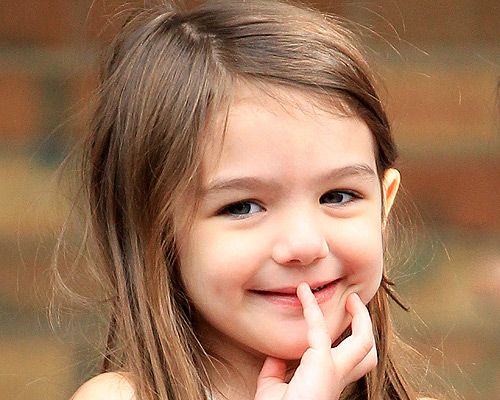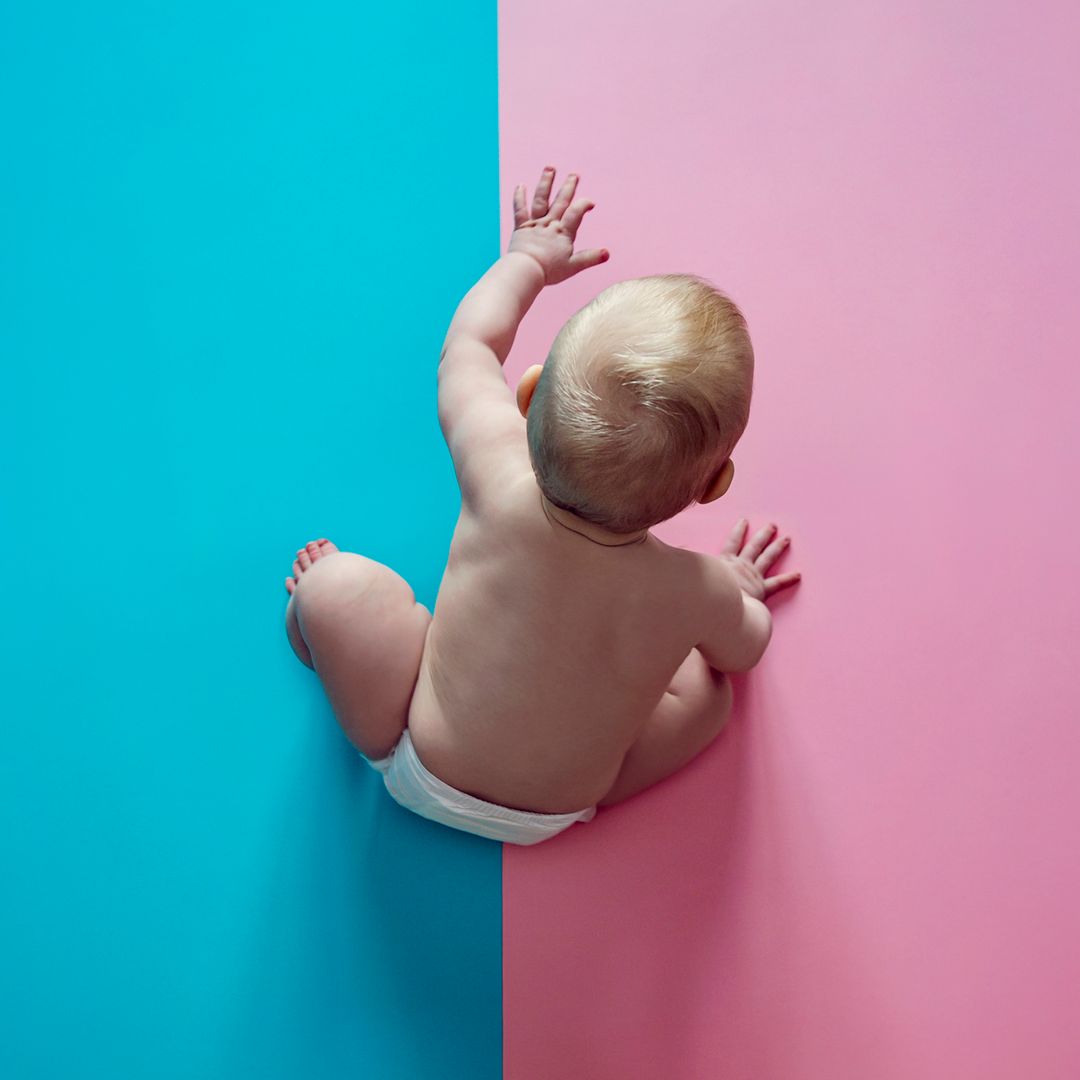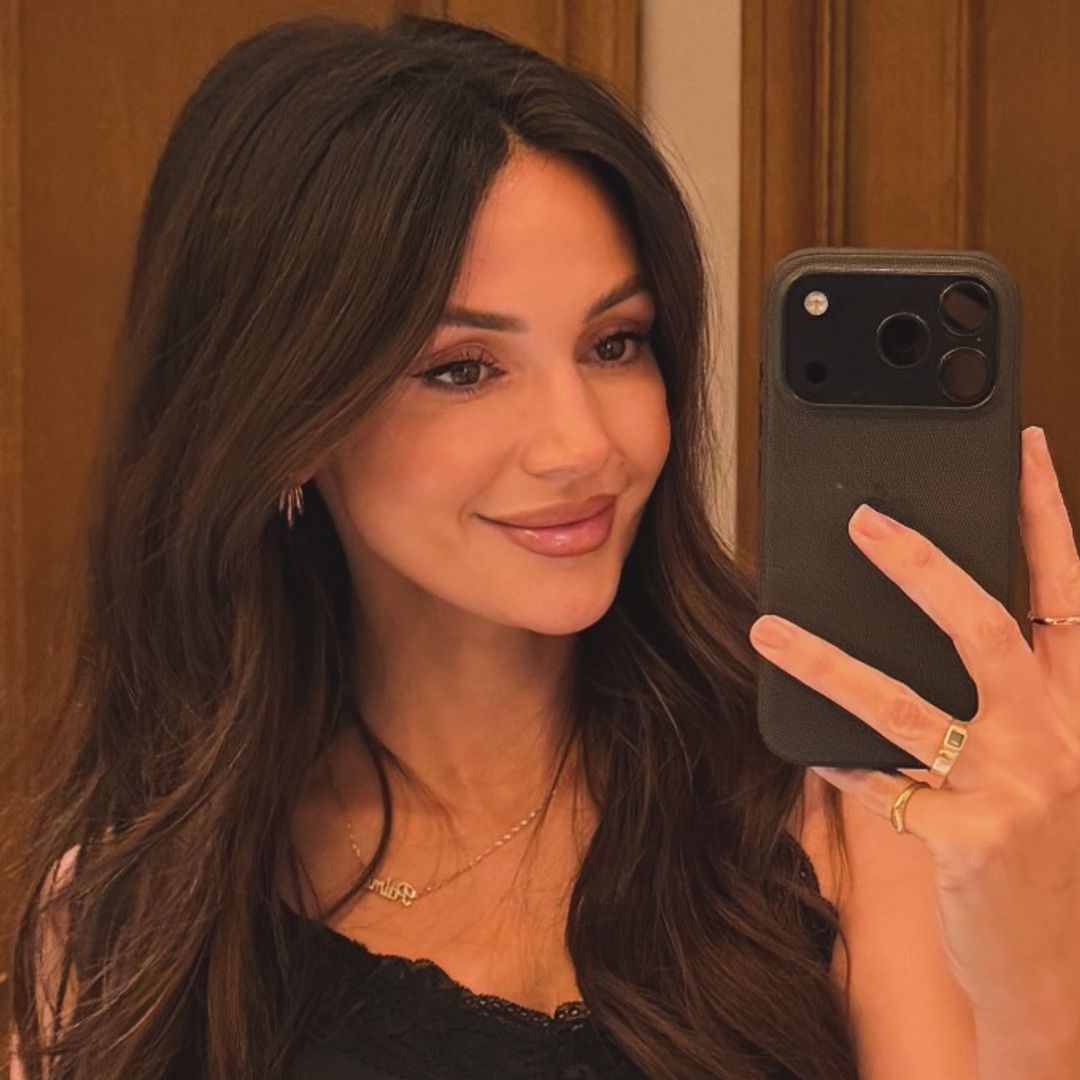Children need healthy teeth and gums to eat, smile and talk, but almost all babies are born without teeth.Tooth buds develop during pregnancy, though, and dental care is important right from the start: it's vital that parents teach their children the basics of dental hygiene early on and make them understand the importance of regular brushing and regular dental visits.
Tom Cruise and Katie Holmes's little girl Suri's lovely smile
Early dental care
Even before the baby's first tooth appears – usually between five to eight months – there are tooth buds under the gum. Cleaning the gums with a damp gauze after feedings can prevent the buildup of harmful bacteria and protect those first little pearly whites.
Sweet habits are bad habits
Putting a baby to bed with a bottle means that the sugars in the milk or juice remain on the teeth for hours and can damage the enamel and cause early tooth decay. Children aren't born with a sweet tooth, so don't add extra sugar to the bottle. Later on, it's also important to limit sugary drinks and sweets for young kids and to make sure that they learn to brush immediately after eating.
The first visit to the dentist
Discuss the timing with the dentist, but by the time the baby is a year old, she should have had her first dental visit to check on tooth development and discuss any potential problems with teeth and jaw. Some dentists will ask mum to take the baby along when she is going for her own routine check-up. Remember that if visits start early and are just seen as part of the normal family routine, they are less likely to be traumatic later on, which will make life easier for the child, the parents – and the dentist!
Brushing children's teeth
When the first tooth appears, you can continue to use a damp gauze or start using a soft toothbrush. When you do progress to a brush, make sure it's one that's intended for a baby's mouth. By age one, children should be used to a normal child's brush and allow their parents to clean their teeth without fretting. They should learn about brushing three times a day, paying attention to both sides of the teeth as well as the teeth at the back, the gums and the tongue. The child will gradually be able to take more responsibility for brushing but is likely to need to be reminded and to be supervised until they are aged about seven.
Milk teeth and adult teeth
All children develop at slightly different rates, but your baby will probably have a full set of 20 baby teeth by the age of two. Then, between ages five and seven, the permanent teeth begin to come through and push at the milk teeth. The first to show is usually the molars at the back, but it is usually the lower front teeth that are lost first, followed by the upper front teeth. Gradually, all the milk teeth are replaced, and most children have a set of 28 permanent teeth by about age 13. The last four teeth – the wisdom teeth at the very back of the gums – don't usually make an appearance until the late teens or early twenties.
Don't forget to look after your own teeth during pregnancy and take care that you follow a healthy diet so that your baby's future teeth develop properly. Check with your dentist or health visitor if you have any questions either about your own teeth or about your baby's.








